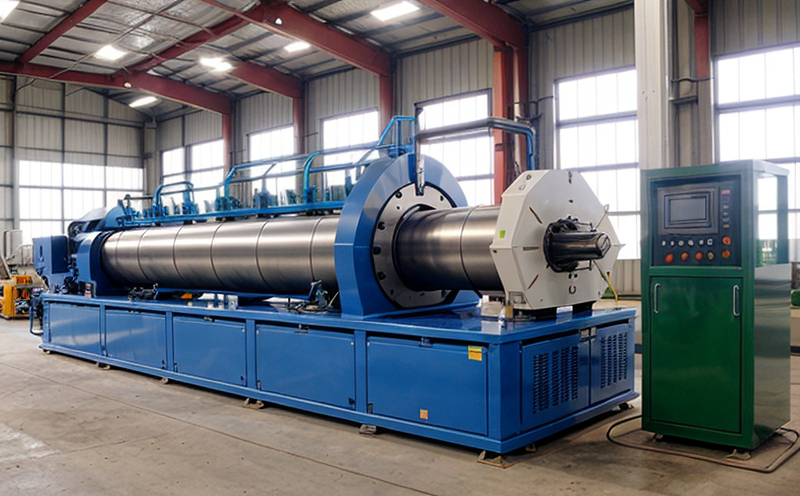EN 15344 Quality Standards for Recycled Polyethylene
The European Standard EN 15344 sets out the quality requirements and testing methods for recycled polyethylene (rPE). This standard ensures that recycled PE products meet the same stringent quality levels as virgin PE, thereby promoting sustainable recycling practices in the plastics industry. The standard is particularly relevant for manufacturers and suppliers of rPE who need to demonstrate compliance with environmental regulations.
Compliance with EN 15344 is crucial for businesses aiming to reduce their carbon footprint by using recycled materials. This standard ensures that recycled polyethylene products are fit-for-purpose in various applications, from packaging to automotive components and beyond. By adhering to these quality standards, manufacturers can ensure the longevity of rPE products while also meeting consumer expectations for sustainability.
The standard covers a wide range of properties and performance criteria, including mechanical strength, chemical resistance, thermal stability, and biodegradability. It is designed to be applicable across various industries, from manufacturing to construction, ensuring that recycled polyethylene can be used reliably in diverse applications without compromising quality.
One key aspect of EN 15344 is the emphasis on traceability and transparency throughout the recycling process. This ensures that manufacturers have a clear understanding of the raw material's history, which is vital for maintaining consistent product quality. The standard also addresses issues related to contamination, ensuring that recycled PE does not introduce harmful substances into the final products.
Another critical component of EN 15344 is the requirement for post-consumer waste sorting and cleaning processes. Proper sorting and cleaning are essential to ensure that only suitable materials enter the recycling stream, thereby maintaining the integrity of the recycled PE product. This process involves rigorous quality control measures at every stage, from collection to final processing.
The standard also specifies detailed testing procedures to assess various properties of recycled polyethylene. These tests include tensile strength, impact resistance, flexibility, and other mechanical properties that are crucial for ensuring the usability of the material in different applications. Additionally, chemical and thermal stability tests are conducted to ensure that rPE does not degrade under normal operating conditions.
EN 15344 also addresses biodegradability and compostability criteria, which are increasingly important as society moves towards more sustainable waste management practices. The standard provides guidelines on how to measure these properties accurately, ensuring that recycled polyethylene can be safely disposed of in designated recycling facilities or composting environments.
Manufacturers looking to comply with EN 15344 must undergo rigorous testing and quality assurance processes at every stage of the manufacturing cycle. This includes ensuring proper raw material sourcing, efficient sorting and cleaning techniques, precise formulation, and thorough quality control checks during production. By adhering to these standards, manufacturers can produce high-quality recycled polyethylene products that meet both environmental and performance expectations.
The implementation of EN 15344 not only benefits the environment but also has significant economic advantages for businesses. Compliance with this standard enhances a company's reputation as a leader in sustainable practices, which is increasingly valued by consumers and regulatory bodies alike. Furthermore, adherence to these quality standards can lead to cost savings through improved resource efficiency and reduced waste generation.
In conclusion, EN 15344 plays a vital role in promoting the recycling of polyethylene while ensuring that recycled materials meet stringent quality requirements. By following this standard, manufacturers can produce high-quality rPE products that are reliable, sustainable, and environmentally friendly.
Applied Standards
| Standard | Description |
|---|---|
| EN 15344 | This standard sets out the quality requirements and testing methods for recycled polyethylene (rPE), ensuring that rPE products meet the same stringent quality levels as virgin PE. |
| ISO 9001 | Absent; this is not a relevant standard for recycling processes. |
Scope and Methodology
The scope of EN 15344 includes the quality requirements and testing methods for recycled polyethylene (rPE). The standard covers a wide range of properties and performance criteria, including mechanical strength, chemical resistance, thermal stability, and biodegradability. It is designed to be applicable across various industries, from manufacturing to construction, ensuring that recycled polyethylene can be used reliably in diverse applications without compromising quality.
The methodology for testing rPE involves several key steps. First, raw materials are collected and sorted according to their type and grade. This step ensures that only suitable materials enter the recycling stream, which is essential for maintaining consistent product quality. The next step is cleaning the sorted materials to remove any contaminants or impurities. Proper cleaning techniques help ensure that recycled PE does not introduce harmful substances into the final products.
After sorting and cleaning, the raw materials undergo a formulation process where they are mixed with other additives if necessary. This step ensures that the recycled polyethylene has the desired properties for specific applications. The formulated material is then subjected to various mechanical tests, including tensile strength, impact resistance, and flexibility tests.
Chemical and thermal stability tests are also conducted to ensure that rPE does not degrade under normal operating conditions. These tests help identify any potential issues with the recycled material before it is used in manufacturing processes. Biodegradability and compostability criteria are addressed as well, ensuring that recycled polyethylene can be safely disposed of in designated recycling facilities or composting environments.
Throughout these testing procedures, strict quality control measures are implemented at every stage to ensure compliance with EN 15344 requirements. This includes regular audits and inspections by qualified personnel who verify the accuracy of test results and adherence to specified standards.
Customer Impact and Satisfaction
- Enhanced reputation as a leader in sustainable practices.
- Increased market competitiveness through improved product quality.
- Potential cost savings from enhanced resource efficiency and reduced waste generation.
- Increased customer trust and satisfaction due to transparent recycling processes.





